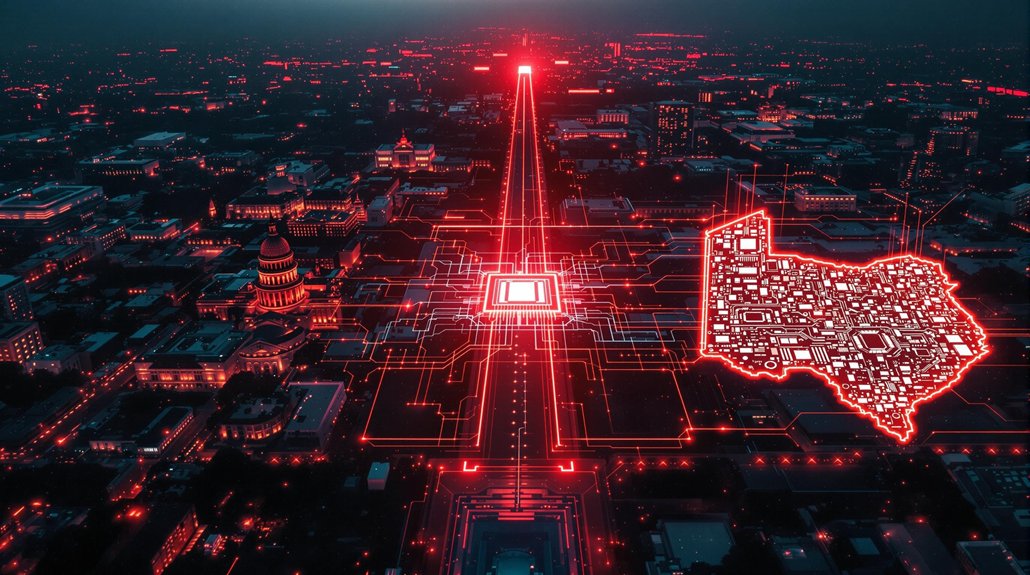Three U.S. states have banned Chinese AI applications on government devices in early 2025. Texas led the effort on January 31, with New York and Virginia following in February. Officials worry about data security and Chinese government access to sensitive information. Meanwhile, the Trump administration is reviewing AI regulations established under President Biden. The restrictions highlight growing tensions in the U.S.-China technological competition as both nations vie for AI dominance.
As concerns about data security continue to grow, three U.S. states have imposed bans on Chinese AI applications, including DeepSeek, on government devices in early 2025. Texas led the charge on January 31, followed by New York on February 10 and Virginia on February 11.
These restrictions come amid heightened worries about data harvesting by Chinese companies and potential access by the Chinese government. The bans prohibit state employees and contractors from using these AI tools on government devices or networks.
Officials cite fears that sensitive information could be compromised, potentially threatening critical infrastructure and government operations. Many compare these actions to earlier TikTok bans on government devices.
“We can’t risk having our data fall into the wrong hands,” said one state official who requested anonymity. The restrictions cover multiple Chinese apps beyond DeepSeek, affecting daily operations across state agencies and departments.
Virginia’s Executive Order 26 specifically ensures protection against Chinese Communist Party’s influence throughout the Commonwealth’s operations.
Meanwhile, the federal landscape is shifting. The United States leads global AI development with 59% of top researchers and eight of the world’s top ten supercomputers, creating a complex backdrop for regulatory decisions. The Trump administration is reviewing AI regulations established under President Biden. The White House has requested input on new AI policy by July 2025, while Congress debates a possible federal ban on Chinese AI platforms for government use.
A coalition of 21 states is urging Congress to enact nationwide restrictions. The debate has drawn bipartisan support but faces potential legal challenges, including questions about First Amendment implications.
Tech industry reaction has been mixed. Some leaders worry the bans might hinder America’s competitiveness in AI development, while others support protecting sensitive information.
Students and researchers have expressed concerns about losing access to valuable AI tools for academic purposes.
“It’s not just about today’s risks but tomorrow’s technological leadership,” noted a tech industry analyst. As states continue implementing restrictions, questions remain about the effectiveness of state-level actions versus a coordinated federal approach.
The restrictions highlight the growing tension between innovation and security as AI becomes increasingly central to the U.S.-China technological competition.
These state-level actions emerge as Chinese AI models like Qwen2.5 and Hunyuan increasingly outperform some American frontier models in benchmark tests.









